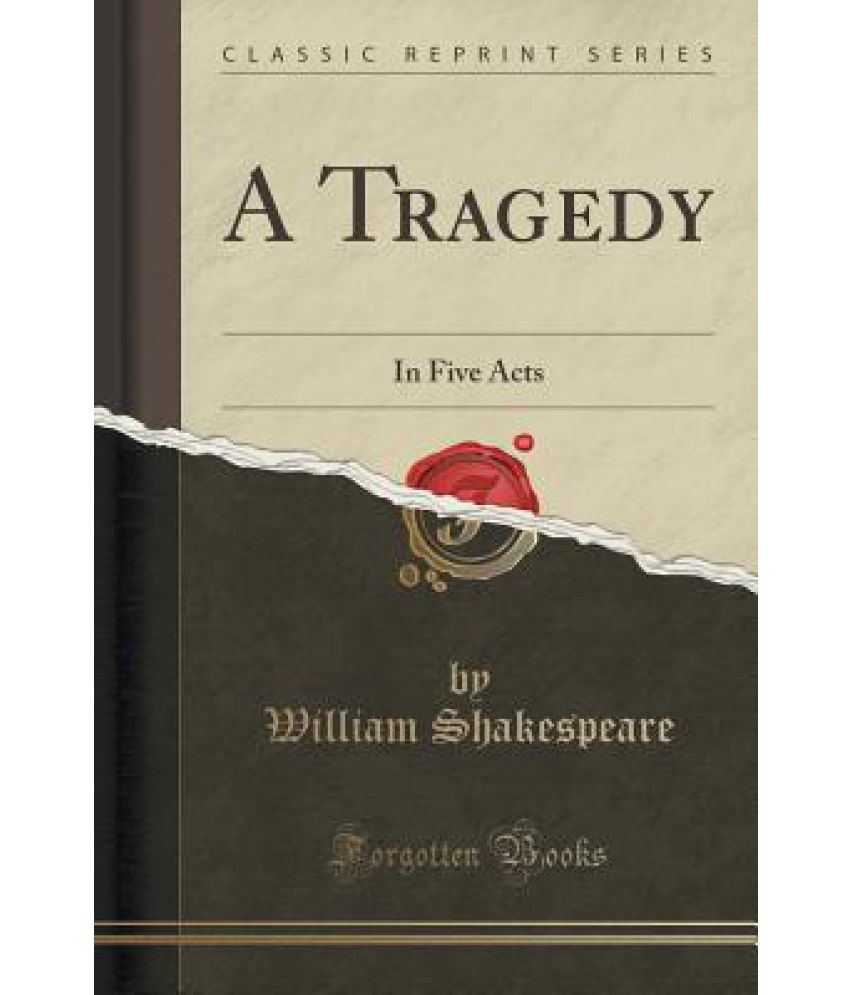Something went wrong. Please refresh the page and try again.
Something went wrong. Please refresh the page and try again.
Notifications can be turned off anytime from settings.
Item(s) Added To cart
Qty.
Something went wrong. Please refresh the page and try again.
Something went wrong. Please refresh the page and try again.
Exchange offer not applicable. New product price is lower than exchange product price
Please check the updated No Cost EMI details on the payment page
Exchange offer is not applicable with this product
Exchange Offer cannot be clubbed with Bajaj Finserv for this product
Product price & seller has been updated as per Bajaj Finserv EMI option
Please apply exchange offer again
Your item has been added to Shortlist.
View AllYour Item has been added to Shopping List
View AllSorry! A Tragedy is sold out.


You will be notified when this product will be in stock
Learn More about the Book
Excerpt from A Tragedy: In Five Acts
The Essay on Hamlet, by the celebrated German critic Gervinus, contains, perhaps, the most complete and accurate history of the play, and the most close and searching analysis of the character which has appeared.
As we believe no translation of it has yet been published, the one we now offer which - with the exception of a very few additions and omissions - strictly follows the text, may not be uninteresting.
The story of Hamlet originally appeared in Saxo Grammaticus, though in a crude and unpolished form. We next find it in a more finished and refined state in "Belleforest's Novels," published in 1564, and subsequently in an English work taken from them and published in 1608, entitled the history of Hamblett. In the story as here narrated, Horoendill is killed by his brother Fengo, who grasps possession at the same time of both his empire and his wife. Hamblett's counterfeited madness is the center of the story, and the many enigmas, difficult of solution, in which it abounds, was its main charm for the Northern taste. As thus told the tale ends with Hamlet's successful revenge and his becoming king. Indeed, the scene in which Hamlet induces his mother to return to the paths of virtue, during which he takes the life of a listener behind the screen, and that in which, going to England, he lays a trap for the ambassadors, are the only ones which, in any way, contributed material to Shakespeare in the diverging conception with which he treats the tale. The figures of Laertes and Ophelia are nowhere to be found in the original story, though there is one of a maiden, quite disconnected with the principal action, who, having been brought up with Hamlet from childhood, yields to him the last favor a woman grants, and promises, with solemnity, to reveal to the world nothing of what has passed. This trait in the story is raw, rough and incapable of use, and all the others are of a similar character. Yet though this beautiful drama of Shakespeare took its rise from so poor and primitive a source, it has become more identified with his name than any other which has sprung from the fountain of his genius. When you speak of Shakespeare you speak of Hamlet. In Hamlet are presented the most contradictory sides of his heart and of his mind. Equally in originality of thought, as in the popularity of its tone, it surpasses all his other works. It is nature's own text, taken from life, and almost every line is a mine of precious wisdom. It possesses, too, the peculiar charm which belongs to it, in common with Henry IV., of giving more intuition into the character of Shakespeare, and letting more light upon his inner nature than any other of his plays. Full of that spirit of prophecy, which is near divine, it anticipated time and looked far into the future only to be thoroughly comprehended, after the lapse of two or three centuries. It is not only as a household word now, wherever the English tongue is spoken, but has penetrated modern German life with an intensity of depth only equaled in German literature by Goethe's Faust.
There was another play of Hamlet, written between the two before-mentioned tales in 1560, in which the feature of Hamlet's revenge was made very prominent and fully treated.
About the Publisher
Forgotten Books publishes hundreds of thousands of rare and classic books. Find more at www.forgottenbooks.com
The images represent actual product though color of the image and product may slightly differ.
Register now to get updates on promotions and
coupons. Or Download App